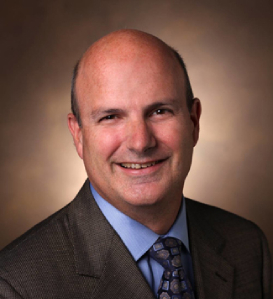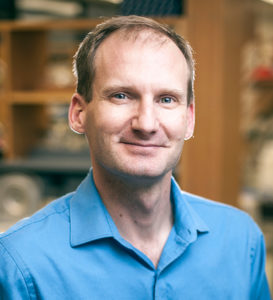David Cortez, Richard N. Armstrong Chair for Innovation in Biochemistry and professor of biochemistry, has been named interim chair in the Department of Biochemistry beginning Jan. 1.


This follows the departure of John York, who was recently named chief science officer of food technology startup Impossible Foods and will be moving to California.
“The investments that Dr. York directed into the infrastructure, training and people in the Department of Biochemistry have been transformative. Simply put, I want to build on this momentum,” Cortez said. “I look forward to working with the faculty, staff and trainees to continue our shared pursuit of excellence in science discovery and education. The people in this department and at Vanderbilt make it special, and I will do everything I can to support them as they pursue their goals.”
Cortez, also associate director for basic sciences research at the Vanderbilt-Ingram Cancer Center, specializes in understanding the function of DNA damage response pathways in maintaining a healthy genome, and in understanding how those pathways are activated. His lab’s current projects include identifying new proteins involved in DNA damage response and developing cancer therapeutics that target that response. The trans-institutional Cortez lab is connected to the Genome Maintenance Research Program within the VICC, the Center in Molecular Toxicology, Vanderbilt Institute of Chemical Biology and the Department of Biochemistry.
During York’s tenure, the Department of Biochemistry became 2019’s top NIH-funded department in the nation.
During York’s tenure, the Department of Biochemistry became 2019’s top NIH-funded department in the nation. With an expanded and diversified faculty, he invigorated the graduate and development research programs, building a shared sense of purpose and community in the department. These efforts fostered an environment that supports discovery science and curiosity-driven research, said Lawrence Marnett, dean of School of Medicine Basic Sciences.
“My time at Vanderbilt has been a remarkable professional experience and a tremendous privilege. Together, we have built a discovery-science environment for recruitment of diverse faculty and trainees,” York said. “The commitment to academic excellence and pursuit of transformative solutions to problems facing the world shared by my colleagues and students is unparalleled, and the department is well-positioned to continue its steep upward trajectory. I intend to maintain the One Vanderbilt spirit of collaboration in the next phase of my career and will remain a friend to all the wonderful colleagues I have worked with over the past nine years.”
“It has been an honor to work with John, who not only significantly increased funding for the Department of Biochemistry, but has also helped to establish Vanderbilt as a top destination for world-class faculty and scholars determined to make life-changing discoveries,” said Provost and Vice Chancellor for Academic Affairs Susan R. Wente. “I wish him luck with his next venture and am confident that David Cortez has the dedication and the visionary leadership to continue the remarkable momentum that John has established.”
Cortez graduated summa cum laude from the University of Illinois at Champaign-Urbana with highest honors in biology and biochemistry and received his Ph.D. in molecular cancer biology from Duke University. After postdoctoral training as a Jane Coffin Childs Fellow with Stephen Elledge at the Baylor College of Medicine, he joined Vanderbilt in 2002. In 2009, Cortez was named professor of biochemistry and Ingram Professor of Cancer Research. His achievements have been recognized with the Howard Temin Award from the National Cancer Institute, the Wilson S. Stone Memorial Award from the MD Anderson Cancer Center and a Pew Scholar Award from the Pew Charitable Trusts. Cortez is a member of the editorial boards of the journals Cell Reports and Science Advances, and in 2017 he was named a fellow of the American Association for the Advancement of Science.
“While the departure of an esteemed colleague is never good news, we are proud of what John has built and wish him well in this exciting new endeavor. Our biochemistry students and faculty have benefitted tremendously from the hard work and dedication that John brought to his role,” Marnett said. “We are also extremely fortunate to have a world-class scientist like Dave Cortez assume the leadership of the department and continue its momentum. I look forward to working with him and anticipate he will be very successful.”